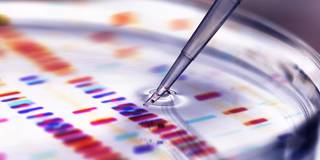Rapid advances in biotechnology demand additional regulations to keep experiments safe, control the spread of potentially dangerous knowledge, and police the ethics of how new learning is applied. But effective worldwide enforcement of such rules will be virtually impossible – and that is a potentially terrifying prospect.
CAMBRIDGE – Biomedical advances in recent decades have been hugely beneficial – most of all for the world’s poor, whose life expectancy has increased dramatically. But the future looks more dangerous. Although continued innovation will further improve people’s lives, it will also give rise to new threats, and sharpen some ethical dilemmas concerning human life itself.
For starters, some scientists are looking into ever more extreme ways of enabling people to live longer. But although we would almost certainly welcome an extended, healthy lifespan, many of us would not want to prolong matters once our quality of life or prognosis dipped below a certain threshold. We dread clinging on in the grip of, say, dementia, and being a drain on resources and the sympathy of others.
Medical progress is also blurring the transition between life and death. Today, death is normally taken to mean “brain death,” when all measurable signs of brain activity cease. But now there are proposals to restart the heart artificially after “brain death,” in order to keep transplantable organs “fresh” for longer.

CAMBRIDGE – Biomedical advances in recent decades have been hugely beneficial – most of all for the world’s poor, whose life expectancy has increased dramatically. But the future looks more dangerous. Although continued innovation will further improve people’s lives, it will also give rise to new threats, and sharpen some ethical dilemmas concerning human life itself.
For starters, some scientists are looking into ever more extreme ways of enabling people to live longer. But although we would almost certainly welcome an extended, healthy lifespan, many of us would not want to prolong matters once our quality of life or prognosis dipped below a certain threshold. We dread clinging on in the grip of, say, dementia, and being a drain on resources and the sympathy of others.
Medical progress is also blurring the transition between life and death. Today, death is normally taken to mean “brain death,” when all measurable signs of brain activity cease. But now there are proposals to restart the heart artificially after “brain death,” in order to keep transplantable organs “fresh” for longer.